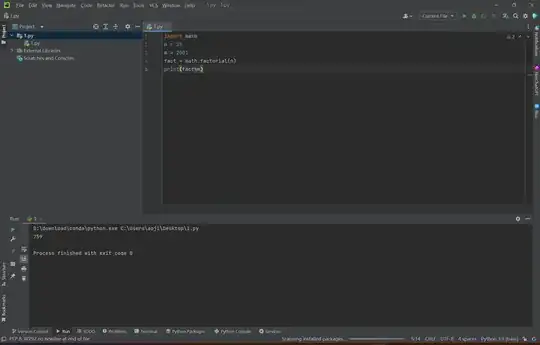Problem
Calculate $x$ so that $x\equiv 25! \mod{2001}$
What I ve tried so far
First of all I came up with the correct solution by splitting the problem up into smaller problems, such as: $$25!\equiv [10!]_{2001} \times [11\times 12 \times 13 \times 14 \times 15]_{2001} \times \cdots \times [23\times 24 \times 25]_{2001} \mod 2001 \equiv [759]_{2001}$$
But this seamed a bit stilted, and I tried: Because of the chinese remainder theorem we find two equations: $$ 25! \equiv b_{69} \mod{69}$$ and $$ 25! \equiv b_{29} \mod{29}$$
Now since $69=3\times 23$ we can split the first equation up again and find that $b_{69}\equiv 0 \mod 69$ For the second equation I did the following: $$25! \equiv b_{29} \mod{29} \iff (-1)(-2)(-3)b_{29} \equiv -6b_{29} \equiv -25!\times 26 \times 27 \times 28 \equiv -28! \mod{29}$$
Now I use Wilsons congruence and find: $$-6b_{29}\equiv (-1)(-1) \mod{29}$$ Now I m just searching for $$b_{29}\equiv [6]_{29}^{-1}$$ and found through Bachet-Bezout $$b_{29}\equiv 5\mod{29}$$
Then I calculated $$ \alpha_{69}\equiv [69]_{29}^{-1}\equiv [8]_{29}$$ And $$\alpha_{29}\equiv[29]_{69}^{-1}\equiv [-19]_{69}$$ And then I thought that $$x\equiv \alpha_{69}b_{29}\times 29 + \alpha_{29}b_{69}\times 69 \equiv 8\times 5\times 29 -19\times 0\times 69 \equiv 1160 \mod{2001}$$
But this is clearly wrong. I would appreciate it very much if someone could help me find my mistake. Thanks
